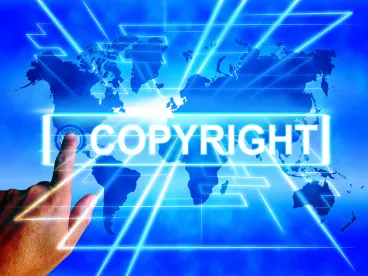The last several months have presented new and formidable challenges for virtually every industry in light of COVID-19. Among these challenges are what to do about the various industry meetings and conferences that are used for networking, introducing new ideas, securing supply/distribution contracts, and developing technology standards. These types of events have historically been held in-person, recognizing that there is value to being able to shake a colleague’s hand or to gather with a community of peers. As social distancing and stay-at-home orders have caused us to adjust the way we go about our daily lives, so too have industries had to adjust their vital, in-person, meetings. This blog post will review COVID-19’s impact on various industry meetings and the ways in which industries have committed to continuing to press innovation forward. In addition, we review important considerations in light of disruptions to these industry meetings and the Coronavirus Aid, Relief and Economic Security (CARES) Act with respect to patent filing strategies.
The Third Generation Partnership Project (3GPP) is a global body that develops telecommunication standards for various technologies, including the 5G roll-out. The 3GPP has historically held a number of in-person meetings throughout the year, in various locations around globe, where industry stakeholders meet to present technology standardization proposals. The agreed-upon features are then implemented through a series of releases. On February 11, 2020, the 3GPP started to cancel in-person meetings and move their work on-line. The disruption to 3GPP’s work was not limited to moving their in-person standardization meetings on-line as the 3GPP even adjusted the remaining timeline for Release 16, and the future timeline for Release 17, of the 5G roll-out. Despite these significant disruptions, the 3GPP reported that the move to on-line meetings has been a success and that Release 16 is scheduled to be complete by the end of June 2020.
While the 3GPP has been able to move their meetings on-line successfully to continue to press innovation forward, other industries have seen the cancellation or postponement of events, or are monitoring the current public health situation so as to determine how to proceed. In the mining industry, the sponsors of MINExpo International®, a mining showcase that hosts over 40,000 mining professionals from over 100 countries, is assessing several options for the once-every-four-year event, considering the logistical complexities of canceling/rescheduling such an event. In the semiconductor industry, various conferences throughout the Spring and early Summer have been canceled or postponed from their originally scheduled dates. These have, by no means, been the only industries affected by COVID-19, and it could be months or years before the full effects of these disruptions are understood.
In response to the global cross-industry disruptions caused by COVID-19, the U.S. Patent and Trademark Office (USPTO) has taken steps to alleviate the strain on innovators under the CARES Act. As detailed in several previous articles posted to our coronavirus hub and on this blog, some of these relief measures have included providing 30-day extensions for certain filing/fee deadlines falling between March 27 and May 31, 2020. While these actions certainly reduce pressure on innovators in the short term, since 2013 the U.S. has been, like many other industrialized countries, a first-to-file patent system where patent rights are granted to the first inventor to file a patent application. No doubt, financial considerations, new working environments, limited access to labs or workstations, and other similar challenges are all going to impede innovation and related patent filing strategies.
Given the new challenges that inventors are facing, the consequences of a first-to-file system will likely be re-prioritized as decisions are made to delay patent filings to later dates. In fact, in the months and years ahead, it is likely that more emphasis will be placed on assessing the value of a particular innovation by inventors or the organizations for which they work, with respect to decisions of whether to pursue a patent filing or to keep the innovation as a trade secret. However, once an innovation has been identified as valuable and worth pursuing in a patent application, it is important to remember the first-to-file system of the U.S. and to start the process of filing a patent application quickly. Even if a change to a conference or an industry meeting delays the intended public presentation of an innovation, it may be beneficial to not delay the filing of a related patent application, so as to secure a filing date for the patent application.
Of course, varying circumstances around each inventor or invention will influence the decision of whether or when to file a patent application, and we would not purport to have considered all of the unique difficulties and challenges that inventors or business could be currently facing. Here, we only wish to provide a reminder that in the current state of disruption that industries are experiencing, one thing that has not changed is the importance of establishing early filing dates for patent applications under the U.S.’s first-to-file system. Thus, as innovation is pressed on in various industries through re-scheduling of meetings or by moving work on-line, and as inventors and business adapt to changing forecasts, certain important patent filing-related considerations remain intact.




 />i
/>i
